Tag: Region 3
CWI’s Mindy Young leads students to success in network and system administration
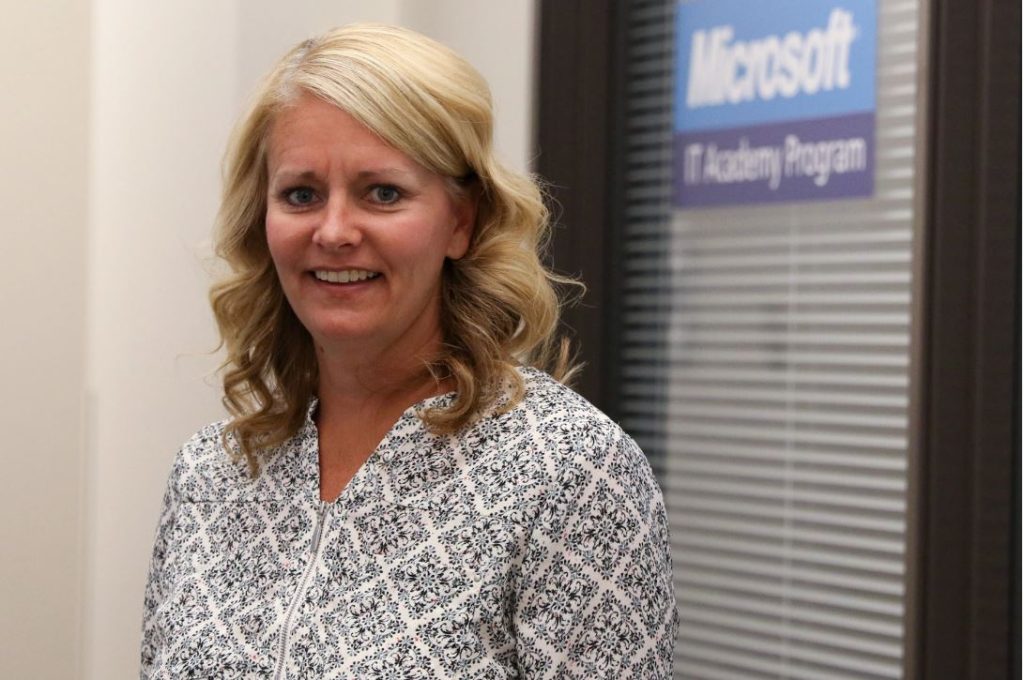
Mindy Young, a dedicated educator at College of Western Idaho (CWI), has spent the past 15 years guiding students toward successful careers in network and system administration. Her journey into education began after a successful career in healthcare IT. After earning her degree from Utah State University, Young worked in IT for Intermountain Healthcare for nearly a decade as a system administrator.
“I was excited to land my first system administrator job, but when the program I was working on was shut down, I decided to step back and get into education,” said Young.
With two young children at the time, Young sought a career change that would allow her to be more present at home. She obtained her Microsoft Certified Trainer (MCT) certification and began teaching for local IT education companies before moving to Boise. Before long, a friend suggested she look into teaching at Boise State University’s Selland College of Technology. When CWI opened its doors in 2009, Young joined the institution as one of its founding faculty members. Her move to CWI allowed her to further her passion for education and contribute to shaping the college’s emerging IT program.
The goal of the program is to get students jobs in the industry, starting with roles like help desk support and moving up to system administration.
Mindy Young
The program spans four semesters and leads to an Associate of Applied Science degree in Network and System Administration. Students can also earn industry technical certificates along the way, including certificates in Networking, Security, Database Fundamentals and Cloud Infrastructure. This structured pathway helps students gain foundational skills before advancing to more complex areas of IT.
Young continually evolves her curriculum to reflect the rapidly changing tech landscape, incorporating cloud-based systems alongside traditional on-premises servers.
“I’m an active member in the MCT community, and I attend conferences like the MCT Summit to stay in touch with my peers and learn about emerging technologies,” said Young.
This dedication to professional development allows her to offer a curriculum that’s both relevant and hands-on. Her classes are designed to balance lecture with practical experience, and many of her graduates have gone on to land high-level positions in IT, including cloud architects and system administrators. But Young was recently reminded of her impact when a former student came to her aid during an IT issue at CWI.
“Just a couple of months ago, we lost internet connectivity in our classrooms, and I called the help desk. On the other end was one of my graduates,” said Young. “When he told me his name, I realized it was one of my former students. It was so rewarding to see him now providing support in the very field he trained for, helping to solve a problem at CWI.”
Young’s impact extends beyond the classroom.
“Employers are reaching out to me because they know my students come out of the program with solid skills,” said Young. “Many former students are now in hiring roles themselves, contributing to the ongoing success of the program.”
Balancing a demanding workload can be challenging, but Young finds the work incredibly rewarding.
“I do it because I know I’m making a difference. It’s fulfilling to see my students succeed and change their lives,” said Young.
Looking ahead, she’s excited about upcoming changes to her program, including a shift toward cloud security and the program’s name change to Cloud Security and System Administration next fall.
“We’re adapting to prepare our students for a hybrid IT world, with both on-prem and cloud-based systems,” said Young. “I’m optimistic these changes will attract even more students to the field.”
Teacher’s vision brews a future filled with opportunity for her students
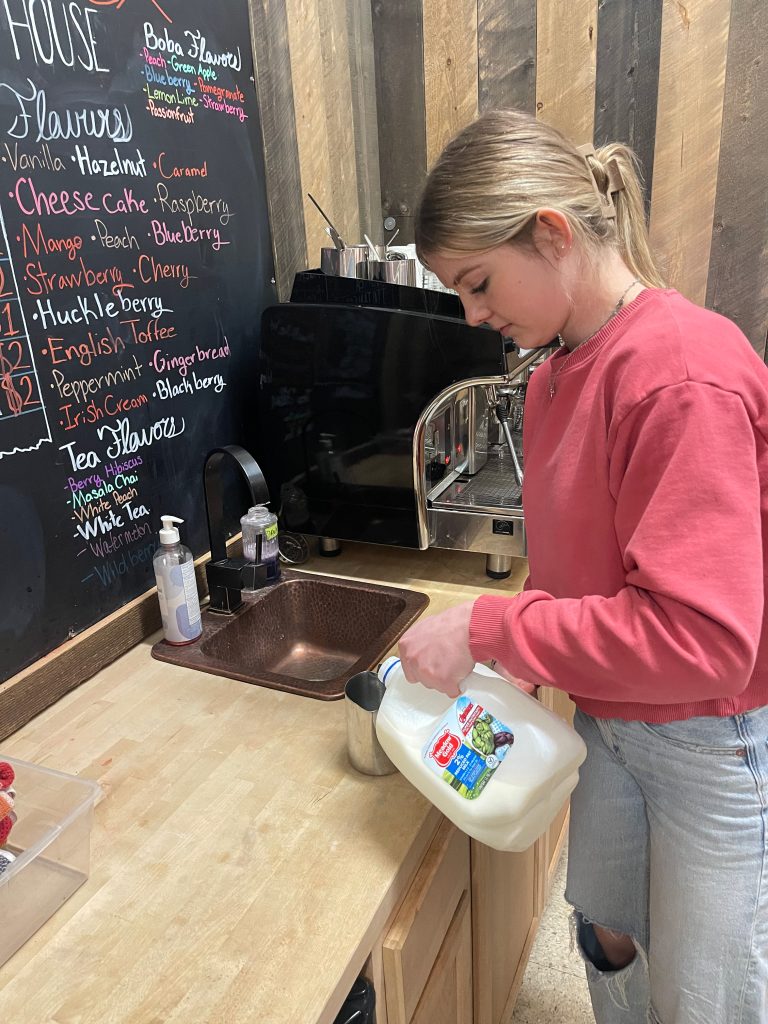
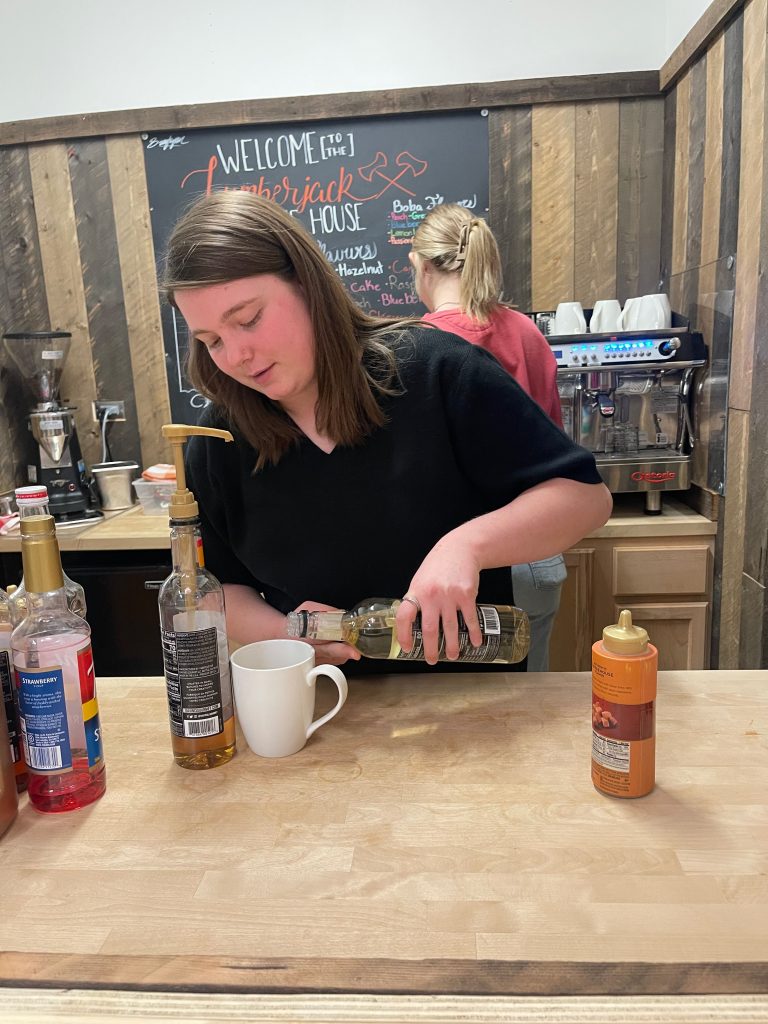
With just 70 students in grades nine through 12, Council High School (CHS) may be small, but its FCSHS teacher, Jodi Cook, has big ambitions. Since 1992, Cook has been inspiring students with her passion for culinary arts, which took root during her own junior high experience. Her involvement in Future Homemakers of America (now FCCLA) and national culinary competitions in high school further fueled her desire to teach FCSHS.
Three years ago, Cook envisioned a student-run coffee shop to enhance her culinary arts program. This dream became a reality when the school remodeled its library, transforming a small closet into Jack’s Coffee Shop, named after the school’s mascot, the Lumberjacks. A Program Quality Initiative (PQI) grant provided the funding for the necessary commercial equipment, allowing Cook’s initiative to come to life.
The coffee shop offers students the chance to earn valuable certifications for careers in the food service industry. All students earn an online barista certification and the Idaho-specific Ready, Set, Food Safe Certification. Some even earn the ServSafe Manager Certification, which demonstrates advanced knowledge in food safety and sanitation.
“Running the coffee shop helps students develop essential skills,” said Cook. “They build teamwork and a strong work ethic as they manage daily operations, research drink trends, and adapt to customer preferences.”
I check in with them occasionally, but the coffee shop is entirely student-run and self-sustaining.
Jodi Cook, FCSHS teacher
Jack’s Coffee Shop operates on weekdays from 7:30 to 8 a.m. Monday through Thursday, allowing students to manage it independently before classes. Students also run the coffee shop on Wednesdays during lunch. Students take pride in crafting seasonal menus and special drinks, such as the Lumberjack Special for homecoming. Recently, they introduced boba tea and nondairy alternatives based on customer feedback, displaying their ability to research and innovate.
Beyond coffee-making, the initiative teaches crucial skills in entrepreneurship, marketing and customer service. Students create drink menus, conduct surveys to understand customer needs, design promotional materials, manage inventory and handle transactions.
“I check in with them occasionally, but the coffee shop is entirely student-run and self-sustaining,” said Cook.
The practical experience gained from managing the coffee shop has enabled many students to successfully transition into jobs at local restaurants and coffee shops, including positions in nearby McCall. This initiative not only enhances their culinary knowledge but also equips them with essential workplace skills, fostering pride and a sense of community within the school.
“I wanted my students to learn how to be baristas because coffee shops are very popular,” said Cook. “This hands-on training provides them with skills they can use when they graduate. If they go to college, they could easily step right into a coffee shop, earn some money and do something positive and fun.”
Innovative program exposes underserved students to CTE
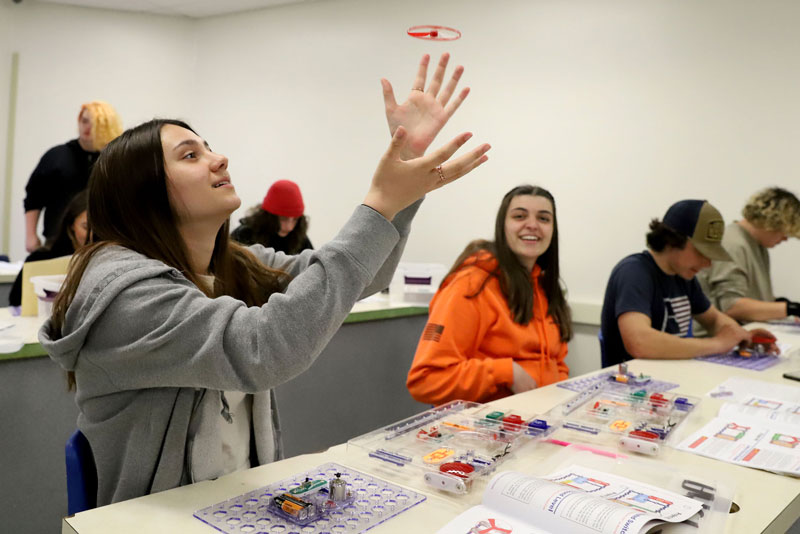
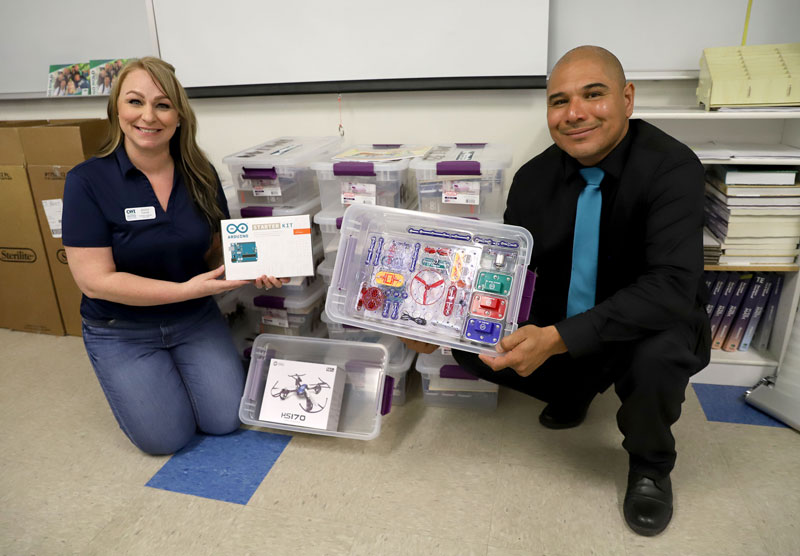
Jessica Concie and Oster Hernandez, transition coordinators for the College of Western Idaho’s (CWI) Dual Credit department, have long believed in the power of CTE. So, when Concie discovered CWI’s Center for New Directions had assembled a plastic trunk filled with a lesson plan and some hands-on activities using an included circuit board to introduce students to CWI’s Mechatronics program, she thought it would be a perfect way to spark the interest of students enrolled at alternative high schools in the Treasure Valley.
“Oster and I have a soft spot for these kids because they’re so often overlooked. A lot of them are just trying to get through high school; they’re not thinking about what’s next or what could be,” said Concie. “CTE programs tend to work really well for these students because they’re so hands-on, and students can clearly see how what they learn connects to careers.”
With the support and approval of their supervisor, Concie and Hernandez created the Pop the Trunk initiative. To expose these students to some of the 41 CTE programs offered at CWI, Concie and Hernandez approached CTE faculty about creating a week’s worth of lesson plans to introduce potential students to their CTE program. The lesson plans would be accompanied by trunks—one per student—filled with equipment and activities to support the lessons. Materials were purchased using grant money, and the program is available at no cost to students or teachers.
“CTE programs tend to work really well for these students because they’re so hands-on, and students can clearly see how what they learn connects to careers.”
Jessica Concie

Pop the Trunk launched during the 2021-2022 school year with three programs: Mechatronics, Unmanned Aerial Systems, and Drafting. Concie and Hernandez reached out to alternative high schools throughout the Treasure Valley to let them know the program was available.
“We sent out emails to see who was interested, then we dropped off a trunk with the teacher so they could see the lesson plans and play with the trunks. If they liked what they saw, we’d deliver the trunks so they could use them with their students,” said Hernandez.
Teachers and students at Meridian Academy in Meridian, Initial Point High School in Kuna, Eagle Academy in Eagle, and Middleton Academy in Middleton liked what they saw. Now in its second semester, Pop the Trunk continues to grow in scope and popularity. Additional trunks for Automotive Technology, Diesel, and Welding are being developed, and CTE faculty who help develop the trunks and the teachers at the alternative high schools will receive a $500 stipend for their help in developing and using the program starting the spring 2023 semester. In addition, other technical colleges, such as the College of Southern Idaho, have reached out to mirror the program elsewhere in the state.
“It’s been hugely successful because it allows students without access to a lot of resources or support to see what’s possible,” said Hernandez. “We’re looking at expanding the program to rural schools, too.”
Long term, Concie and Hernandez would love to see technical colleges nationwide create their own Pop the Trunk programs to help underserved and overlooked student populations discover CTE. In fact, they were accepted to give a presentation on the initiative at the ACTE Vision Conference in Las Vegas in December 2022.
“I hope schools in other states see the program is working. If we can do it in Idaho, we can do it anywhere,” said Concie. “This is a fantastic way to expose students to what CTE is all about who otherwise wouldn’t have that opportunity.”
Relationships, certifications lead to 100% job placement for Diesel Technology program
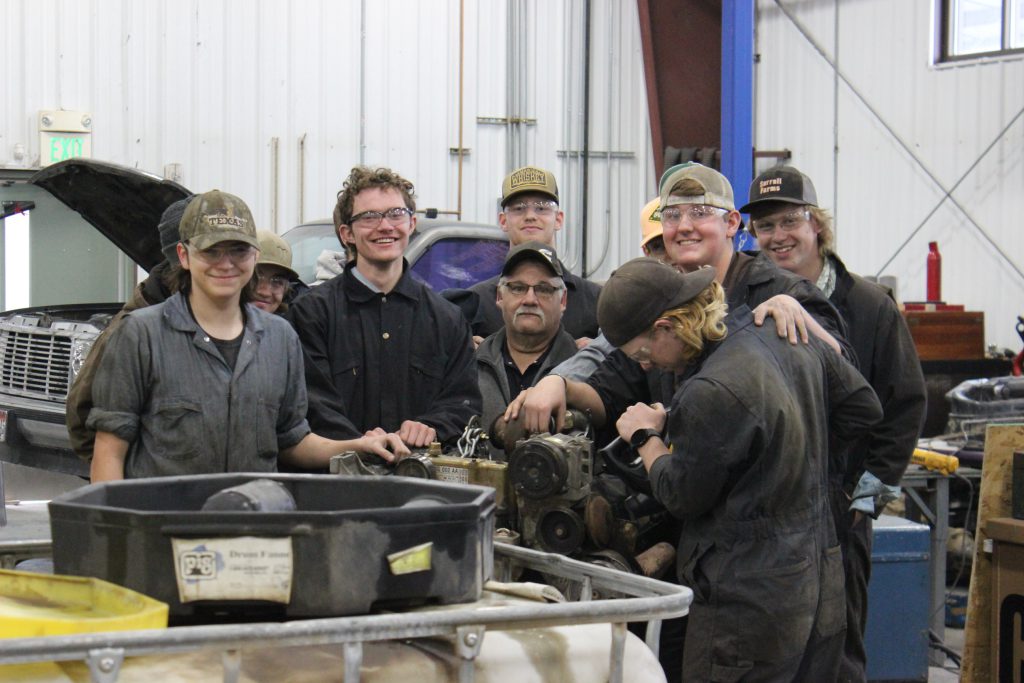
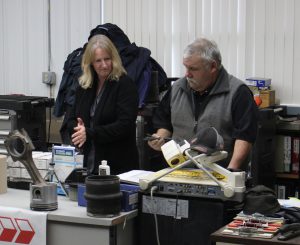
Diesel mechanic John Montana knows firsthand how difficult it is to find skilled workers, especially for in-demand professions. In fact, his inability to find and hire qualified workers is what drove him to become a teacher in the first place.
“I couldn’t hire decent help,” said Montana. “I was training new employees on the job anyway for about 10 or 11 years, so when Canyon-Owyhee School Service Agency’s (COSSA) old diesel technology teacher retired in 1999, I figured I’d give teaching a try.”
Though Montana started teaching part-time, he soon discovered he loved working with the kids and was teaching full-time by his second year. In the two decades since, Montana has cultivated relationships with about a dozen farm implement companies, several of whom employ Montana’s former students. These relationships benefit students and businesses alike—in many ways.
First, industry partners like John Deere, Kenworth, Peterbilt, Agri-Service, Caterpillar, and Mountain View Equipment are always willing to drop off equipment and provide opportunities for students to develop their skills via job shadowing and internships. They know they’ll be able to hire skilled workers from the talent pool Montana produces, so they’re willing to help his students develop career readiness skills by conducting mock job interviews or reviewing student resumes.
Second, industry partners provide additional feedback about new workers’ skills and what needs to change or be updated in the program to prepare students for their careers. This also helps ensure Montana himself stays current.
“That’s one positive thing about these kids staying local; they’re an excellent reference for me,” said Montana. “I don’t get to work out in the field like I used to, so I bounce stuff off my former students all the time. I know I can call any of them up and ask, ‘What have you run across?’ or ‘We’ve got this truck in here that’s doing this and this; have you seen anything like that?’”
Most importantly, these relationships have resulted in 100% job placement over the past 14 years.
“Because the program teaches to NATEF standards, students can earn industry-recognized certifications in electrical engines, transmissions, engine repair, brakes, and preventative maintenance,” said Montana. “Students can also earn their OSHA 10 card and SP2 Safety and Pollution Prevention training certificates while still in high school. That means students may not need a lot of on-the-job training after they graduate.”
This is a huge advantage to not only students but their employers as well.
“If there are 50 applicants for a job and you have these certificates—especially the safety certificates—you’ll move to the top of the list because it cuts down on the number of hours an employer has to train you, and you can get right to work,” said Montana.
Patricia Frahm
COSSA’s principal, Patricia Frahm, says the importance of this foundation can’t be overstated. “If a student walks out of a CTE program with these certifications, they can walk into a job immediately, and if they decide to go on to college, it gives them a skill they can use to pay their way through school,” said Frahm. “They also learn work ethic and accountability in the process—things that can help them for the rest of their lives.”
 Official Government Website
Official Government Website